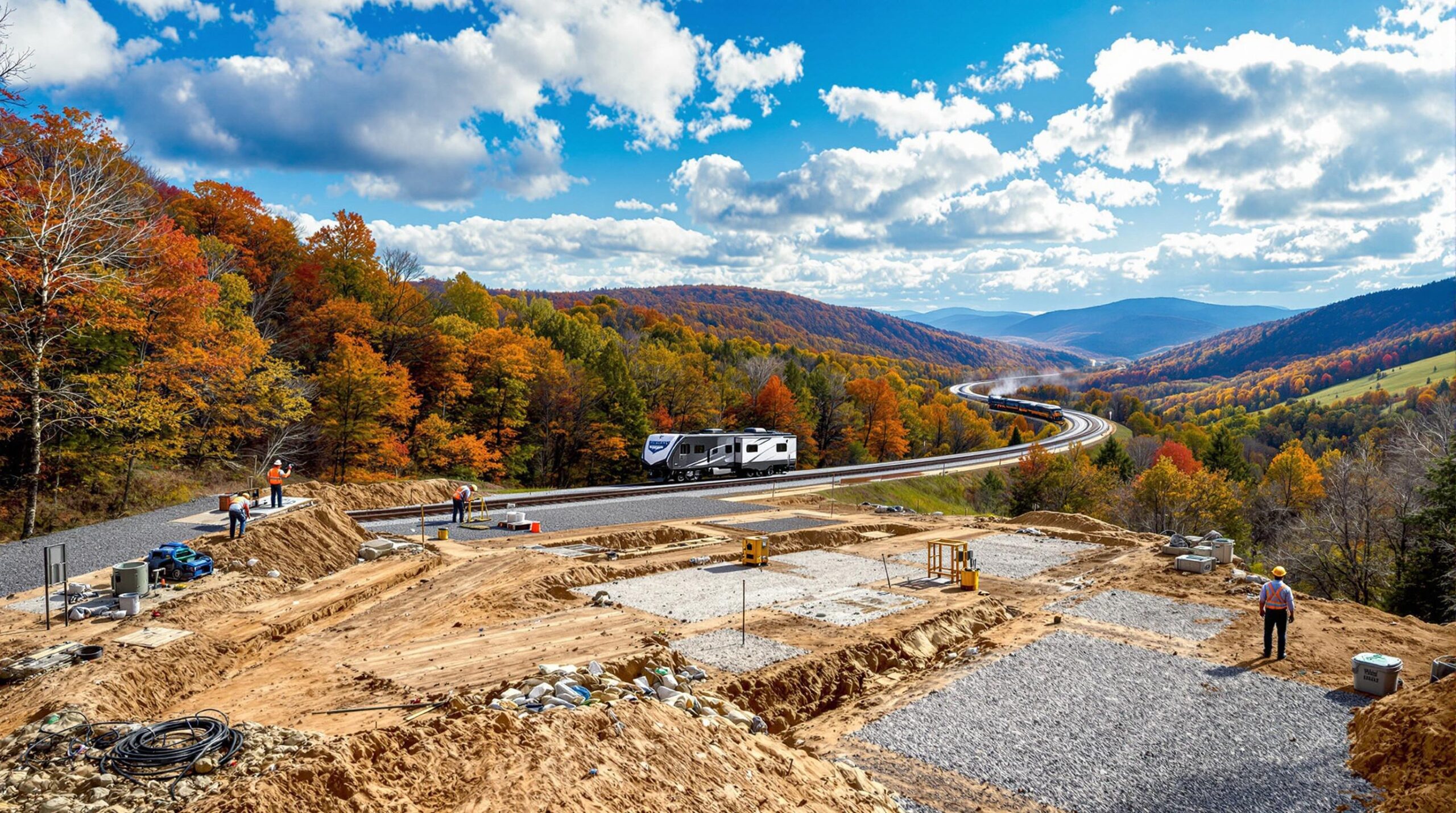West Virginia is pouring nearly $13 million into new and expanded campgrounds at Cass Scenic Railroad State Park and Lost River State Park, a move that state officials say will open a combined 135 new campsites when construction wraps up by mid-2025, according to a state parks press release.
For RV park owners, suppliers and tech vendors, the public dollars signal fresh demand for hookups, connectivity and guest-experience upgrades throughout the region.
At Cass Scenic Railroad State Park in Pocahontas County, crews are carving out the park’s first campground: 100 full-hookup sites served by water and 50-amp electric, two bathhouses, a check-in building, an RV dump station and paved internal roads. The work carries an $8 million price tag and a July 2025 target opening.
“I’m incredibly proud of the hard work going into the campground upgrades at Cass Scenic Railroad State Park and Lost River State Park. Each day, the world continues to discover the world-class recreational opportunities in West Virginia. By improving our campgrounds and preserving the rich history of our parks, we’re inviting more visitors to see for themselves why our state parks are the best in the country,” Gov. Jim Justice said in the release.
The Cass campground sits on the former Deer Creek Extract Plant, which produced hemlock and spruce bark extracts during World War I. Foundations that still stand will be preserved, and interpretive signs will explain their industrial past to modern campers.
While 50-amp service meets today’s baseline, operators watching the project may want to rough-in extra conduit and fiber while trenches are open, spec junction boxes sized for future 100-amp pedestals, add a couple of EV fast-charge stalls near the gatehouse and choose a cloud-based property-management system before the first rig rolls in. Retrofitting those elements later is far costlier once asphalt is down and reservations are live.
Meanwhile, Lost River State Park in Hardy County has broken ground on 35 new campsites, each with water and 50-amp electric, plus a bathhouse, check-in station, dump station and paved circulation roads. The work is budgeted at about $4.8 million and is slated for completion in June 2025, the same state parks document shows.
The campground extends stay options at the 4,000-acre mountain park, which already offers 26 CCC-era cabins, a swimming pool and miles of forested trails — an attractive mix for RVers who now expect both solitude and reliable utilities.
Cass’s interpretive signage and Lost River’s deep woods also open doors for higher-rate programming. Park managers can use QR-coded heritage walks, fee-based ranger talks on bygone industries and permeable campsite pads lit by solar path lights to cut operating costs, boost nightly rates and lengthen guest stays. Similar tactics could turn the new West Virginia sites into living classrooms while fattening ancillary revenue.
Native landscaping and gravel stabilizers can further reduce mowing and runoff, and resonate with millennials, who represent a growing share of the RV market. Such sustainability tweaks often pay for themselves through lower maintenance and higher reviews.
The campground projects are part of more than $250 million in upgrades completed across the state park system during the Justice administration, the same release notes, underscoring government’s role in priming West Virginia for outdoor-recreation growth.
Expanded overnight capacity in Pocahontas and Hardy counties is expected to lengthen visitor stays and pump additional spending into nearby towns. Private RV parks could see spillover demand, while vendors of broadband, EV charging and reservation software may find new contract opportunities.
Both projects broke ground in August 2024. Lost River is scheduled to open first, in June 2025, followed by Cass in July. Once reservations go live, industry observers will be watching how West Virginia pairs dynamic pricing with campground-wide connectivity — lessons private operators can quickly adapt to their own parks.


